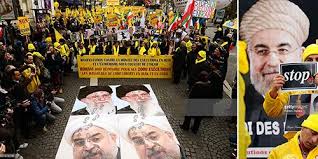
In a startling announcement, Amnesty International reported that 2015’s number of recorded executions surged to the worst it’s been in 25 years, with Iran accounting for 82% of all executions recorded in the Middle East and North Africa.
In its report, Amnesty International confirmed that Iran executed nearly one thousand people – 977 total – in 2015 alone, making it a central culprit in the concerning rise of global capital punishment. According to Amnesty International, Iran alone accounted for 82% of all executions recorded in the Middle East and North African regions. Amnesty’s figures estimate that, excluding China, Iran was responsible for roughly 60% of all global executions in 2015.
Amnesty also held Iran accountable for its inhumane execution of juvenile delinquents, reporting that in 2015 Iran documented the execution of at least four juvenile delinquents, which is “in flagrant breach of international law.”
This isn’t the first time Iran’s high execution rate has been heavily criticized. Earlier this year, thousands of protesters rallied peacefully in Paris and London against Iranian president Hassan Rouhani’s European tour. The protesters called upon Europe to object business ventures in Iran, arguing that financially supporting Iran would subsequently finance the concerning rise in state-sponsored executions. Maryam Rajavi, the leader of Iran’s largest opposition group, the National Council of Resistance of Iran, said in a statement at the Paris rally, “Rolling out the red carpet for Rouhani by European governments is to welcome the godfather of terrorism and fundamentalism.”
A United Nations report from last month corroborates much of Amnesty International’s report, calling Iran one of the world’s leading users of the death penalty. The report’s investigator, UN special rapporteur for human rights in Iran Ahmed Shaheed, said that in June 2015 the number of reported executions reached more than four per day – a figure he found “especially alarming,” especially given President Hassan Rouhani’s promises to relax capital punishment. Shaheed also criticized Iran’s harsh press censorship and unfair crackdown on regional journalists, noting that hundreds of Iranian “journalists, bloggers and activists,” were still being detained.
The increase in executions have been called “profoundly disturbing,” by Salil Shetty, Amnesty International’s Secretary General. Shetty said in Amnesty’s report that, “Iran, Pakistan and Saudi Arabia have all put people to death at unprecedented levels, often after grossly unfair trials.”
“This slaughter must end.” Shetty concluded.
